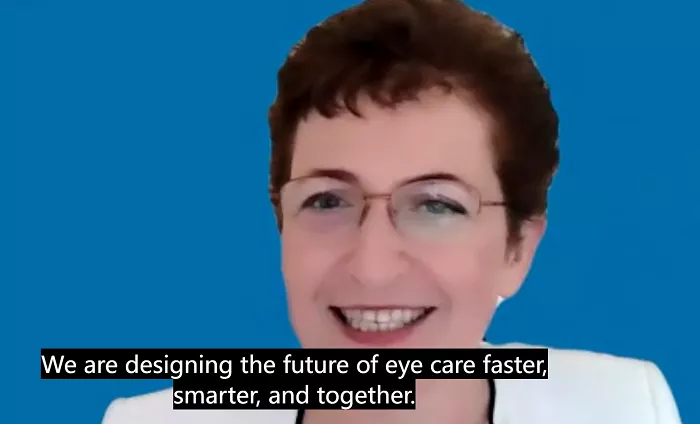In one of her first in-depth interviews since becoming Chief Executive Officer of the Collaborative Community on Ophthalmic Innovation (CCOI), Malvina Eydelman, MD, outlined her ambitious vision to revolutionize eye care innovation worldwide.
Speaking with Sheryl Stevenson, executive editor of the Eye Care Network, Eydelman shared plans to accelerate innovation, unite global stakeholders, and transform patient outcomes. Her leadership marks a key milestone as CCOI expands its mission to deliver groundbreaking solutions in ophthalmology.
Eydelman brings more than 30 years of experience at the U.S. FDA, where she was instrumental in shaping regulatory pathways for medical devices across multiple specialties. Most recently, she served as Director of the Office of Ophthalmic, Anesthesia, Respiratory, ENT, and Dental Devices, leading multidisciplinary teams to advance the safety and effectiveness of numerous technologies.
“What excites me most about leading CCOI at this point in my career is the shift from enabling innovation within the government to directly catalyzing it on a global scale,” Eydelman said.
Her vision for CCOI is ambitious. She describes the organization as a “global launch pad for change,” with goals to modernize clinical trial endpoints, align global regulators, and build a network of certified clinical trial centers of excellence.
“The innovation pipeline is clogged—not because of a lack of ideas, but because we’ve been working within an outdated framework,” Eydelman explained.
Central to her strategy is ensuring patient input is involved from the very beginning. “We can’t claim progress if it doesn’t resonate with the people it’s meant to help. We’re not just listening to patients—we are giving them a seat at the table,” she emphasized.
Eydelman is also committed to fostering the next generation of innovators. The upcoming CCOI Innovation Academy and a new partnership with Stanford’s Byers Eye Institute will provide much-needed real-world innovation training to address existing gaps.
“Success to me over the next 2–3 years won’t mean incremental progress; it will mean transformation,” Eydelman added. “The goal isn’t just progress, it’s building an ecosystem that preempts barriers and redefines what’s possible.”
Related topics:


